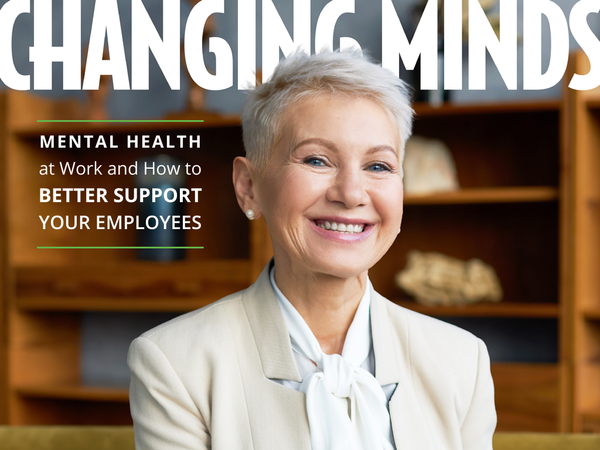The Psychology Of Misinformation: CNN's Perspective On Changing Minds

Table of Contents
Cognitive Biases and the Spread of Misinformation
The human brain isn't a perfectly rational information processor; cognitive biases often lead us astray. These biases significantly contribute to the spread of misinformation.
Confirmation Bias
Confirmation bias is the tendency to favor information confirming pre-existing beliefs. This means people are more likely to believe and share information that aligns with their worldview, even if that information is false.
- Examples: A climate change skeptic readily accepts articles denying climate change while dismissing scientific consensus. Conversely, someone who believes in a particular conspiracy theory will readily accept supporting "evidence," even if it lacks credibility.
- Online Amplification: Social media algorithms often reinforce confirmation bias by prioritizing content matching user preferences, creating echo chambers.
- Mitigation Strategies: Actively seek out diverse perspectives. Consciously evaluate information sources' credibility, considering their biases and potential agendas.
Availability Heuristic
The availability heuristic means we overestimate the likelihood of events that are easily recalled, often because they are vivid or recent. This makes us susceptible to believing false information that is repeatedly presented, regardless of its veracity.
- Impact on Misinformation: A widely circulated but false news story, due to its memorability, might be perceived as more likely to be true than a less publicized accurate report.
- Media's Role: Sensationalist media coverage can inadvertently reinforce the availability heuristic by giving disproportionate attention to rare or dramatic events, often at the expense of more common, less dramatic, yet accurate information.
- Critical Evaluation: Learn to identify and question the source of information. Consider the overall context and look for corroboration from multiple reliable sources.
Motivated Reasoning
Motivated reasoning describes how our desires and emotions influence our reasoning process. We tend to accept information supporting our preferred conclusions and reject information challenging them.
- Misinformation Acceptance: People might readily accept misinformation that aligns with their political or social identity, even when confronted with contradictory evidence.
- Social Identity: Group affiliation plays a crucial role. Individuals might accept misinformation to maintain a sense of belonging within their social group.
- Promoting Unbiased Thinking: Encourage open-mindedness and self-reflection. Practice separating emotions from factual assessment.
The Role of Social Media in Amplifying Misinformation
Social media platforms, while connecting people globally, have also become breeding grounds for the rapid dissemination of misinformation.
Echo Chambers and Filter Bubbles
Algorithms personalize content feeds, creating echo chambers where users are primarily exposed to information reinforcing their existing beliefs. This limits exposure to diverse perspectives and promotes polarization.
- Examples: Facebook's algorithm might primarily show a user posts aligned with their political views, limiting exposure to opposing viewpoints. This reinforces pre-existing beliefs and can lead to increased acceptance of misinformation.
- Polarization: Echo chambers contribute to political and social polarization, making constructive dialogue and compromise more difficult.
- Diversifying Online Sources: Actively seek out news and information from a variety of sources representing different perspectives. Engage with content that challenges your beliefs.
The Spread of Fake News and Disinformation Campaigns
Deliberate creation and dissemination of false information for political or other gain is a major threat. Sophisticated disinformation campaigns use various tactics to manipulate public opinion.
- Examples: The spread of fabricated news stories during elections or the use of bots to amplify false narratives on social media.
- Techniques: Fake news often mimics legitimate news sources, using fabricated quotes or manipulated images. Disinformation campaigns leverage social media algorithms to maximize reach and engagement.
- Identifying and Debunking: Check multiple sources for corroboration. Look for signs of manipulation in images or videos. Be wary of sensational headlines and emotionally charged language.
The Impact of Emotional Appeals
Emotionally charged content, even if factually inaccurate, is often more engaging and shareable than neutral, factual information. This is because emotional appeals bypass critical thinking.
- Examples: Heart-wrenching stories about abused animals (sometimes fabricated) garner significant shares, regardless of the story's veracity. Similarly, emotionally charged political content can easily go viral, even if lacking factual basis.
- Manipulative Tactics: Identify emotionally charged language, sensational headlines, and appeals to fear, anger, or outrage.
- Responding to Emotional Content: Take a moment to pause and assess the emotional response before sharing. Check the source's credibility and look for factual evidence.
CNN's Approach to Combating Misinformation
CNN employs several strategies to counter the spread of misinformation and promote media literacy.
Fact-Checking and Verification
CNN's fact-checking unit rigorously verifies information and corrects false claims. Their work helps counter misinformation and holds public figures accountable.
- Fact-Checking Efforts: CNN's fact-checks are detailed, cite sources, and explain their methodology transparently.
- Transparency and Methodology: The process is clearly outlined, fostering trust and credibility.
- Impact: CNN's fact-checks can influence public opinion and limit the spread of false narratives.
Media Literacy Initiatives
CNN actively participates in educating the public on critical evaluation of information sources. This empowers individuals to make informed decisions.
- Media Literacy Programs: CNN might produce educational videos or articles explaining how to spot misinformation. They could offer workshops or collaborate with educational institutions.
- Target Audience: These initiatives target diverse demographics, including students, educators, and the general public.
- Effectiveness: While hard to quantify precisely, educational initiatives contribute to better media literacy and reduced susceptibility to misinformation.
Promoting Diverse Perspectives
CNN strives to offer balanced coverage and diverse viewpoints, crucial in combating the spread of misinformation. Presenting multiple perspectives helps viewers critically analyze information.
- Commitment to Diverse Perspectives: CNN features various viewpoints on controversial topics, giving viewers a wider range of information to consider.
- Challenges in Achieving Balance: Balancing competing narratives requires careful consideration and a commitment to unbiased reporting.
- Strategies for Nuanced Discussions: CNN aims for fair and balanced reporting by interviewing experts from different sides, offering a range of perspectives, and using fact-based analysis.
Conclusion
Understanding the psychology of misinformation is vital to combating its spread. Cognitive biases, the amplification effect of social media, and the intentional creation of fake news all play significant roles. CNN, through its fact-checking, media literacy initiatives, and commitment to diverse perspectives, actively combats misinformation. The key takeaways are the importance of critical thinking, media literacy, and accessing information from diverse, credible sources. By actively engaging with credible sources like CNN and practicing critical thinking, we can collectively fight the spread of false narratives and build a more informed society. Visit CNN's website for more resources on media literacy and fact-checking.

Featured Posts
-
 Aleksandr Lakazet 157 Gola Vv Frenskoto Prvenstvo Nov Rekord
May 03, 2025
Aleksandr Lakazet 157 Gola Vv Frenskoto Prvenstvo Nov Rekord
May 03, 2025 -
 Bbcs 1bn Income Drop Unprecedented Challenges Ahead
May 03, 2025
Bbcs 1bn Income Drop Unprecedented Challenges Ahead
May 03, 2025 -
 Graeme Sounesss Double Channel Swim Inspired By Islas Fight
May 03, 2025
Graeme Sounesss Double Channel Swim Inspired By Islas Fight
May 03, 2025 -
 La Creme De La Crim Sur Tf 1 L Impact De La Serie Joseph
May 03, 2025
La Creme De La Crim Sur Tf 1 L Impact De La Serie Joseph
May 03, 2025 -
 Three Decisive Questions For Englands Euro 2025 Campaign Under Wiegman
May 03, 2025
Three Decisive Questions For Englands Euro 2025 Campaign Under Wiegman
May 03, 2025
